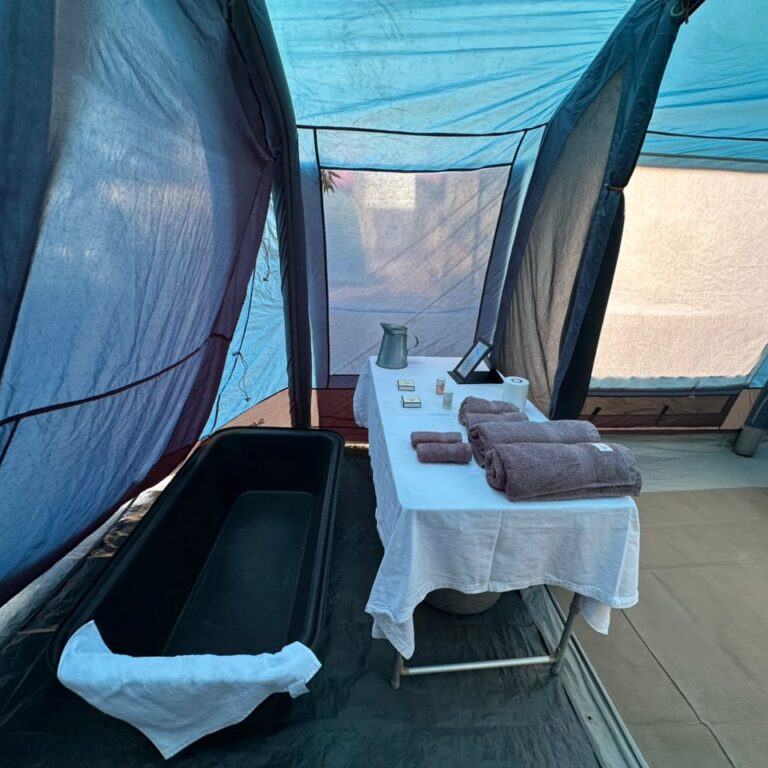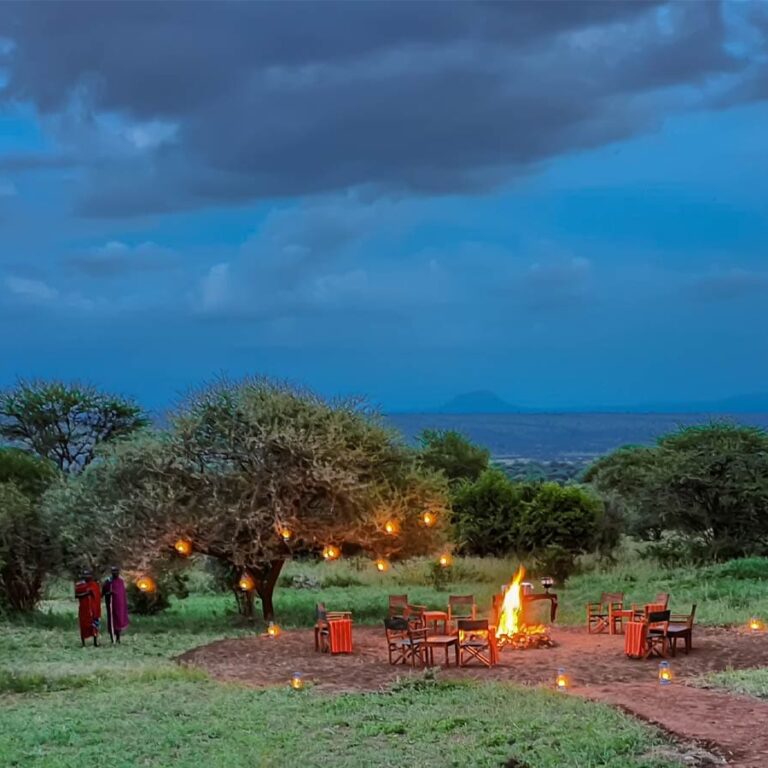Top 10 Reasons Why You Should Go on a Walking Safari.
Embarking on a walking safari is a transformative experience that connects you deeply with nature, wildlife, and the beauty of our planet. Unlike traditional safaris where you observe wildlife from the confines of a vehicle, a walking safari offers a more intimate and immersive encounter with the natural world. In this article, we present the top 10 compelling reasons why you should consider going on a walking safari.
The African savanna is a place of untamed beauty, teeming with life. But have you ever imagined experiencing this wonderland not from the confines of a vehicle, but on foot? A walking safari offers a completely different perspective, transforming you from an observer into an active participant in the wild drama. Here are 10 reasons why a walking safari should be on top of your African bucket list:
Reasons 1: Unparalleled Connection with Nature
Walking through the African bush allows you to truly immerse yourself in the sights, sounds, and scents of the wilderness. You’ll feel the earth beneath your feet, breathe in the crisp, fresh air, and witness the intricate ecosystems at work around you. This direct connection with nature is unparalleled and fosters a profound sense of appreciation and respect for the environment.
Reasons 2: Up-Close Wildlife Encounters
On a walking safari, you have the opportunity to get up close and personal with Africa’s iconic wildlife. Led by experienced guides, you’ll track animals through their natural habitat, observing them in their daily routines without disturbing their behavior. From majestic elephants to elusive leopards, every encounter is a privilege, offering insights into the lives of these magnificent creatures.
Reasons 3: Sense of Adventure
Walking safaris ignite a sense of adventure unlike any other travel experience. As you traverse rugged terrain and navigate through dense vegetation, each step brings a new discovery and a sense of anticipation reasons to join a walking safari. Whether you’re crossing rivers, climbing hills, or trekking through savannah grasslands, the thrill of adventure is palpable, making every moment unforgettable.
Reasons 4: Authentic Cultural Experiences
In addition to wildlife encounters, walking safaris often include interactions with local communities, providing insight into traditional lifestyles and customs. From visiting tribal villages to learning bushcraft skills from indigenous guides, these cultural experiences add depth and richness to your safari adventure, fostering cross-cultural understanding and appreciation.
Reasons 5: Environmental Conservation
Choosing a walking safari supports sustainable tourism practices and contributes to the conservation of natural habitats and wildlife. Reasons to Experience a Walking Safari in Africa. Many safari operators prioritize eco-friendly initiatives, such as minimizing carbon footprints, supporting local conservation projects, and educating visitors about the importance of protecting fragile ecosystems. By participating in a walking safari, you become a steward of the environment, helping to preserve it for future generations.
Reasons 6: Flexibility and Freedom
Unlike scheduled game drives, walking safaris offer flexibility and freedom to explore at your own pace. You can linger to observe wildlife behavior, pause for photography opportunities, or simply soak in the serenity of the wilderness on our guided to walking Safaris. With experienced guides leading the way, you’re free to tailor your safari experience to suit your interests and preferences, creating memories that are uniquely yours.
Reasons 7: Physical and Mental Well-being
Walking safaris not only nourish the soul but also benefit physical and mental well-being. Immersing yourself in nature has been shown to reduce stress, boost mood, and improve overall health. Top 10 Reasons a Safari Should be on Your Bucket List. The rhythmic motion of walking, combined with the tranquility of the surroundings, promotes relaxation and rejuvenation, leaving you feeling invigorated and refreshed.
Reasons 8: Educational Opportunities
Guided by knowledgeable experts, walking safaris offer invaluable educational opportunities to learn about wildlife, ecology, and conservation. Reasons to Experience a Walking Safari in Africa. Guides share fascinating insights into animal behavior, plant identification, and the interconnectedness of ecosystems, enriching your understanding of the natural world. Whether you’re a seasoned nature enthusiast or a curious beginner, there’s always something new to discover and learn.
Reasons 9: Off-the-Beaten-Path Adventures
Walking safaris take you off the beaten path, away from crowded tourist hotspots, and into remote wilderness areas teeming with biodiversity. Why you need to try a Walking Safari? As you explore untouched landscapes and hidden gems, you’ll feel a sense of serenity and solitude. Far removed from the hustle and bustle of everyday life. These off-the-beaten-path adventures offer a glimpse into the untamed beauty of Africa, leaving a lasting impression on your heart and soul.
Reasons 10: Unforgettable Memories
Above all, a walking safari promises to create unforgettable memories that will stay with you long after your journey ends. Whether it’s witnessing a breathtaking sunrise over the savannah, encountering a herd of elephants up close. Or sharing stories around a campfire under the stars, every moment is etched into the fabric of your being. These cherished memories become a source of inspiration and gratitude, reminding you of the profound connection between humans and the natural world.
What is a walking safari?
A walking safari, also known as a guided walking tour or bush walk, is a unique wildlife experience where participants explore natural habitats on foot, accompanied by experienced guides. Unlike traditional safaris conducted from vehicles, walking safaris offer a more intimate and immersive encounter with nature and wildlife.
Is it safe to go on a walking safari?
Yes, walking safaris are generally safe when conducted by reputable operators with trained guides who prioritize safety protocols. Guides are knowledgeable about the behavior of wildlife and are trained to ensure the well-being of participants. However, it’s essential to follow the guidance provided by your guide and adhere to safety instructions throughout the safari.
What kind of wildlife can I expect to see on a walking safari?
Walking safaris offer the opportunity to encounter a wide variety of wildlife. Including elephants, lions, giraffes, zebras, antelopes, and an array of bird species. The specific wildlife sightings may vary depending on the location and ecosystem visited. But participants can expect to observe animals in their natural habitat, exhibiting natural behaviors.
How long do walking safaris typically last?
The duration of walking safaris varies depending on the specific itinerary and preferences of participants. Some walking safaris may last a few hours, while others may span multiple days with overnight camping or lodge accommodations. It’s essential to check the itinerary provided by the safari operator for details on the duration of the safari experience.
Do I need prior hiking experience to go on a walking safari?
No prior hiking experience is necessary to participate in a walking safari. Most walking safaris are suitable for individuals of all fitness levels, with routes tailored to accommodate varying abilities. However, participants should be prepared for walking on uneven terrain and be comfortable with moderate physical activity.
What should I pack for a walking safari?
When preparing for a walking safari, it’s essential to pack lightweight. Breathable clothing suitable for outdoor activities, including sturdy walking shoes or boots. A wide-brimmed hat, sunglasses, sunscreen, insect repellent, and a refillable water bottle. Additionally, it’s recommended to bring a small daypack for carrying essentials such as a camera, binoculars, and personal items.
Can children participate in walking safaris?
Some walking safari operators offer family-friendly experiences suitable for children, with age-appropriate activities and safety measures in place. However, the minimum age requirements may vary depending on the safari operator and destination. It’s advisable to check with the operator beforehand to ensure that the safari is suitable for children and to inquire about any specific guidelines or restrictions.
What is the best time of year to go on a walking safari?
The best time to go on a walking safari depends on the destination and the specific wildlife viewing opportunities you wish to experience. In general, the dry season, which typically corresponds to the winter months in many African countries. Considered the optimal time for wildlife viewing as animals gather around water sources, making them easier to spot. However, each season has its unique advantages, so it’s advisable to research the climate and wildlife patterns of your chosen destination to determine the best time to visit.
Are walking safaris environmentally friendly?
Yes, walking safaris are often regarded as environmentally friendly forms of tourism compared to traditional vehicle-based safaris. By minimizing the use of vehicles and traversing natural landscapes on foot, walking safaris have a lower environmental impact. Reducing carbon emissions and habitat disturbance. Additionally, many walking safari operators actively support conservation efforts and sustainable tourism practices. Contributing to the protection of fragile ecosystems and wildlife habitats.
How can I book a walking safari?
To book a walking safari, you can research reputable safari operators that offer walking safari experiences in your desired destination. It’s essential to read reviews, check credentials, and inquire about the details of the safari itinerary. Including accommodation, activities, and safety measures. Once you’ve selected a safari operator. You can typically book your safari directly through their website or by contacting their booking office.
Conclusion: Why you should go on a walking safari
In conclusion, a walking safari is a transformative experience that offers unparalleled opportunities for adventure, connection, and discovery. From up-close wildlife encounters to cultural immersion and environmental conservation. Every aspect of a walking safari leaves a lasting impact on both travelers and the planet. So why wait? Embark on a walking safari today and embark on the journey of a lifetime.








